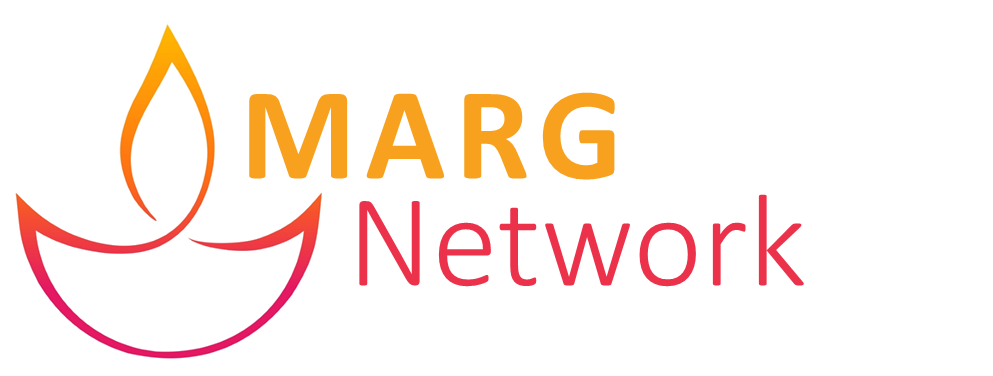I ran across this article recently, referencing five books for Christians to read to better understand Hinduism, while I was with HL Richard at the excellent South Asia Collection of the Ralph D. Winter Research Library in Pasadena, California. This provided an excellent opportunity to ask HL Richard for his own personal recommendations for five books to read to understand the many strands of Hinduism that exist. Here are his suggestions, arranged in order from most introductory to most advanced. Several of these books are available through the Marg Network store, as part of our collection of great resources for fellow Alongsiders.
(As an aside, if you are interested in studying and writing about the intersection of Jesus, India, Christianity, and Hindu concerns, please consider a visit to the Ralph D. Winter Research Library. The library includes the South Asian Collection, an extensive archive of 8,000 books and manuscripts collected during a career of scholarship and assembled over the past forty years of travels across India. Many items in the library have only a few copies in existence outside of India. To learn more about the research center, and to plan a visit, please click here.)
- Hinduism, by HL Richard. First, a caveat that I required this book be listed as the introductory text. Coming in at just 64 pages, this brief book is a clear introduction to the most basic traditions and spiritual beliefs found in Hinduism, and it ably stands up to the challenge of introducing Christian people to the spiritual beliefs and practices of Hindu people.
- Hinduism in Five Minutes, edited by Steven Ramey. How can Hinduism be explained in only five minutes? The title is a misnomer, as each chapter requires only five minutes to read, but there are seventy (very short) chapters in the book. Each chapter answers a different question, such as: “How many gods / goddesses do Hindus worship? Why are many Hindus vegetarian? What do Hindus believe? What is caste, and why are some people treated differently because of it? Is yoga Hindu? What makes arranged marriage appealing to some Hindus?”. This book was chosen for a recent MARG Network online reading group and received positive reviews from the participants for the book’s varied themes and short chapters.
- Hinduism: A Beginner’s Guide, by Klaus Klostermaier. This book is shortened from Klostermaier’s massive and excellent Survey of Hinduism, which went through three editions and is also recommended. This shortened beginner’s guide is ideal for those not yet ready for heavy lifting, outlining all the key points needed in an overview of Hinduism.
- Hindus: Their Religious Beliefs and Practices, (2ndedition) by Julius Lipner. Lipner specializes in nuances, outlining facts but showing exceptions and balancing various perspectives. A very highly recommended survey that can be used as a reference book also.
- Understanding Hinduism, by Dayanand Bharati. A comprehensive survey that was written with Indian readers in mind. The strength of this study is its focus on everyday Hindu concerns. The facts of Hindu history and traditions are outlined, but regularly there are asides about how the average Hindu views matters, which is usually more important than scholarly opinions. A careful reading is required to pick up these nuances. Understanding Hinduism can also serve as a useful reference volume for questions that might arise (the extensive glossary and index help to locate and answer such questions).
- History of Dharmasastra, by PV Kane. To round out HL Richard’s five suggestions, he included this bonus, graduate level recommendation. This eight-volume work, with a combined 6,500 pages, was published in serial over thirty years. Kane’s History of Dharmasastra is so rich in detail and scholarship that Lipner’s Hindus: Their Religious Beliefs and Practices frequently references it throughout his book. Kane learned so much over the decades writing the series that he rewrote the first book in his series after finishing the last book, thirty years after originally publishing it, to reflect newfound understanding he gained along the way.
These books are all excellent resources on understanding Hinduism, ranging from a simple, abridged 64-page summary to a magisterial 6,500 work. If you have enjoyed this list of relevant books, consider looking through the Reading List for Hindu-Christian Interactions.









